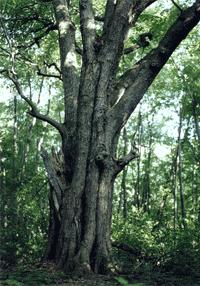For many years, I have believed that the best use for the Belmont Uplands or “Silver Maple Forest” property is as conservation land. If joined to the Alewife Reservation and connected to surrounding neighborhoods with walking trails, it could be a valuable local and regional recreational asset.
Since becoming State Representative, I have made acquisition of the property for conservation purposes a personal priority. I have kept the public closely informed of the ups and downs of my efforts on this issue, but I feel that it is important to summarize publicly where we are now.
The developer has passed many hurdles and may be approaching the completion of permitting for a 40B housing development on the site. For a detailed account of where the permitting stands, see the May 2011 edition of the Belmont Citizen’s Forum newsletter.
The Governor himself and his environmental agencies have made crystal clear that they do not feel that they can allocate state resources towards an acquisition of the property. Most recently, the administration restated this position in a letter from the Secretary of Environmental Affairs to me dated February 1. Secretary Sullivan stated “[t]he Commonwealth of Massachusetts has no plans or means by which to purchase or help purchase this property.”
This communication is only one in a long string of communications to the same effect, going back to my initial filing of legislation in 2007. I have met repeatedly with the Governor and/or with senior members of his administration on this issue. Additionally, a whole host of community advocates and officials have transmitted to the Governor their support for an acquisition. Thousands of signatures have been presented to the administration.
With the support of my colleagues, I have twice passed legislation creating a framework for the state to acquire the property, but the Governor declined to approve the legislation on both occasions. His position reflects the strength of affordable housing concerns within the administration — acquisition of the property is perceived as stopping an affordable housing project. Additionally, environmentalists within the administration prefer acquisition of larger but less expensive parcels in remote areas of the state. The state recently completed, for example, a $3 million purchase of 782 acres to expand a state forest in Tolland.
The administration did, as an accommodation to me and my colleagues from Cambridge and Arlington who advocated acquisition, recently complete an appraisal of the 15-acre Uplands property. The appraisal valued the property at $13.5 million. The appraisal makes the crucial assumption that all permits are granted in the reasonably near future.
Given the clear position of the administration, the challenge of raising these funds falls to the abutting communities, Cambridge, Arlington and Belmont. Belmont and Cambridge have both passed the Community Preservation Act and are therefor better positioned to contribute than Arlington.
Both Belmont and Cambridge have competing priorities for their CPA funds and may or may not feel able to allocate funds to an acquisition. But given the closing window of opportunity, I felt it important to make clear publicly that the state does not appear to be in a position to contribute. Although I remain eager to help advance an acquisition, if an acquisition is to occur, local resources will need to be identified.


Will,
Thanks for your update. I’m afraid you made the situation look more dire than it really is since you didn’t mention the outstanding legal appeal. The Coalition to Preserve the Belmont Uplands is prepared to file an injunction if a building permit is issued prior to the Court’s ruling on the case. Our appeal, heard on March 2nd, 2011, has a decent change of succeeding.
Will,
This strong negative rather hopeless note will discourage others from participating and from support of the legal case and taking more state measures including climate ones. You have truly rendered your own verdict that this is hopeless. I hope you will continue to encourage others to support the Superior Court case and any after appeals that may result. And that to stay in touch with Winn Brook neighborhood developments. The FORUM on the floodplain helped to move the dialogue forward and the 10 sponsoring environmental organizations will try despite this whack against those efforts. One sentence at the end
states a remote possibility.
We in Massachusetts are very fortunate that we still have standing our floodplain and floodplain forest. In your last sentence of a rationale in behalf of the difficulties to progress on state level, and negative comments about the CPA possibilities, you mention the possibility of the court case to succeed using the word “decent”. Thank you for that
one thread of recognition of 4 years of hard effort by a large section of the town of Belmont.
To truly do a “decent” job, one would have to be encouraging and supportive of those trying to protect the future health and safety of their communities on the Mystic River watershed, despite the predictions of 4 to 5 feet elevation in these river tributaries on the Atlantic Ocean made by many scientists and environmental firms such as Horsley and Witten and by Boston Harbor scientists.
Ellen Mass
ps.
The Sayerville N.J. communities are too late and not so lucky as we. Their Raritan Bay, at mouth of Hudson River abd Raritan river just below N.Y.City and is already heavily contaminated from this FIrm and others with him, and they have this same developer at Alewife in their Court. We still have a chance with encouragement from you and other legislators.